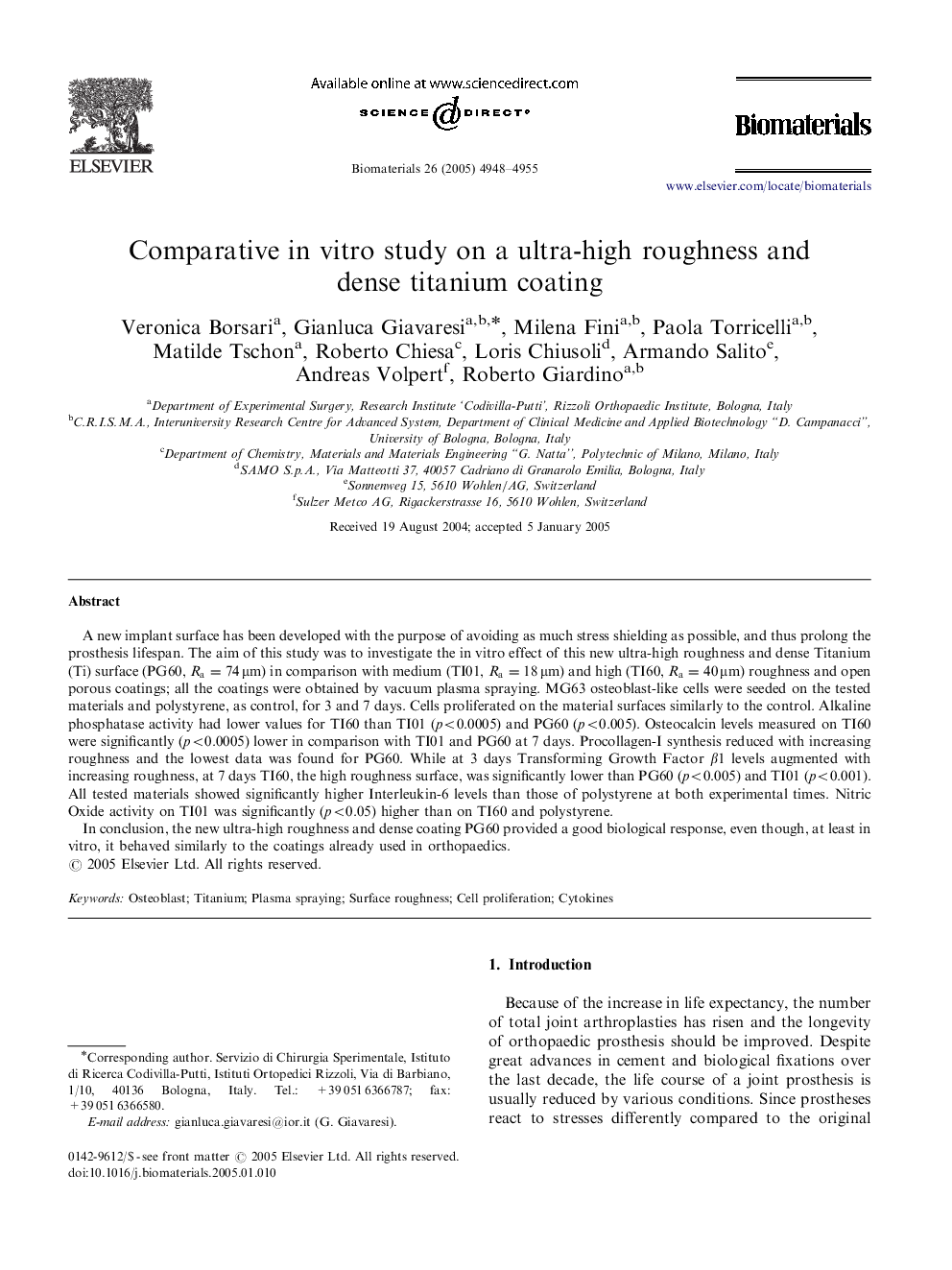| Article ID | Journal | Published Year | Pages | File Type |
|---|---|---|---|---|
| 12063 | Biomaterials | 2005 | 8 Pages |
A new implant surface has been developed with the purpose of avoiding as much stress shielding as possible, and thus prolong the prosthesis lifespan. The aim of this study was to investigate the in vitro effect of this new ultra-high roughness and dense Titanium (Ti) surface (PG60, Ra=74μm) in comparison with medium (TI01, Ra=18μm) and high (TI60, Ra=40μm) roughness and open porous coatings; all the coatings were obtained by vacuum plasma spraying. MG63 osteoblast-like cells were seeded on the tested materials and polystyrene, as control, for 3 and 7 days. Cells proliferated on the material surfaces similarly to the control. Alkaline phosphatase activity had lower values for TI60 than TI01 (p<0.0005) and PG60 (p<0.005). Osteocalcin levels measured on TI60 were significantly (p<0.0005) lower in comparison with TI01 and PG60 at 7 days. Procollagen-I synthesis reduced with increasing roughness and the lowest data was found for PG60. While at 3 days Transforming Growth Factor β1 levels augmented with increasing roughness, at 7 days TI60, the high roughness surface, was significantly lower than PG60 (p<0.005) and TI01 (p<0.001). All tested materials showed significantly higher Interleukin-6 levels than those of polystyrene at both experimental times. Nitric Oxide activity on TI01 was significantly (p<0.05) higher than on TI60 and polystyrene.In conclusion, the new ultra-high roughness and dense coating PG60 provided a good biological response, even though, at least in vitro, it behaved similarly to the coatings already used in orthopaedics.
